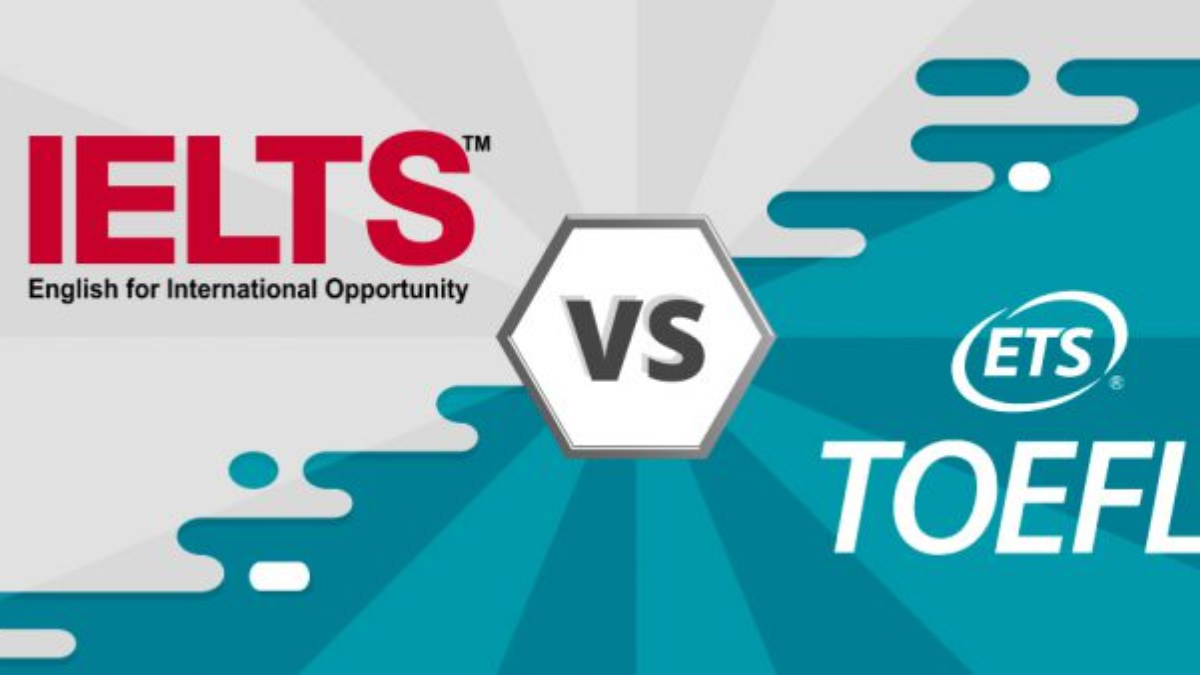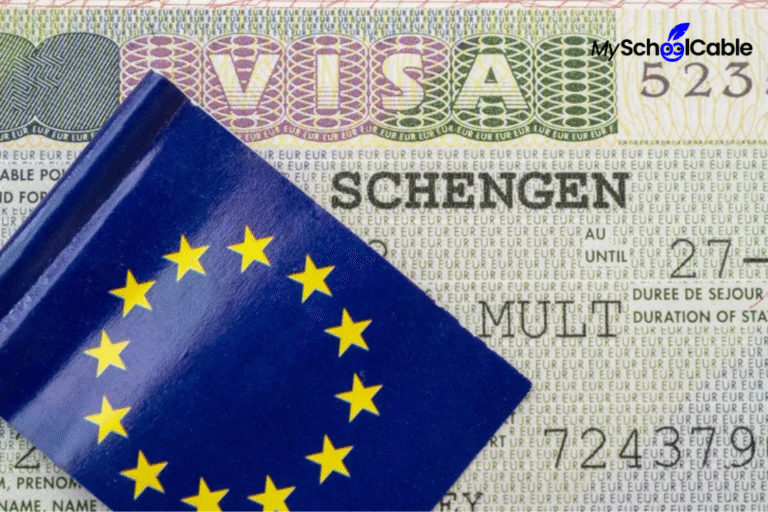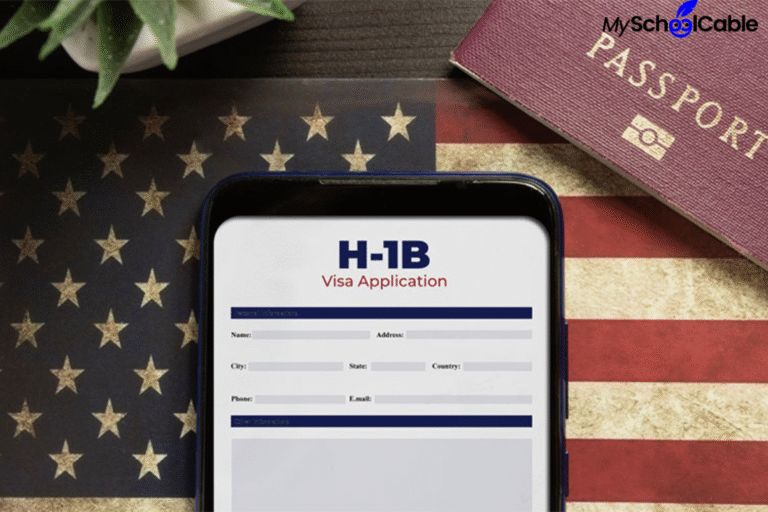TOEFL vs IELTS: the battle is on. The time is near. You’re about to sit for one of the most popular English proficiency tests, and you find yourself in a battlefield with TOEFL and IELTS—which should you choose?
Despite the fact that TOEFL and IELTS both test the English proficiency of their candidates, they are entirely different in the exam Syllabus, registration fees, scoring, and such.
Deciding which to choose largely rests on:
- your goals for taking any of the tests;
- the requirements from the school or organization you’re looking to apply to, and
- the country you’re applying to;
In today’s guide, we’ll go into an in-depth analysis of TOEFL and IELTS, helping you answer questions like TOEFL vs IELTS: which is more accepted; TOEFL vs IELTS: which is easier; or how do I get an accurate TOEFL vs IELTS score comparison?
Table of Contents
About TOEFL and IELTS
The Test of English as a Foreign Language (TOEFL) is a widely accepted test used to assess the English speaking, listening and writing proficiency of non-native speakers, particularly within academic settings.
Also read: TOEFL Writing Template | All You Need to Know
Administered by the Educational Testing Service (ETS), TOEFL comprises Reading, Listening, Speaking, and Writing, with a score range of 0 to 120.
The International English Language Testing System (IELTS), on the other hand, is administered by the British Council, Cambridge English, and the International Development Program (IDP). It’s a leading English proficiency test, consisting of five types:
- IELTS Academic, mostly used to gain university admission
- IELTS General Training, for migration or work visa
- IELTS for UKVI Academic
- IELTS for UKVI General
- IELTS for UKVI Life Skills
Understanding the Similarities and Differences Between TOEFL and IELTS
IELTS and TOEFL both evaluate candidates’ skills in four (4) core areas — Reading, Listening, Speaking, and Writing. But this doesn’t mean they’re entirely the same; in fact, IELTS and TOEFL differ in several ways, such as scoring systems, purpose, countries where they are accepted, etc.
In this section, we’ll outline the key similarities and differences between IELTS and TOEFL, helping you understand the most suitable test to take for your needs.
Similarities Between IELTS and TOEFL

IELTS and TOEFL aren’t all different—they have some key similarities, which include:
- Both are English proficiency tests.
- Both results are valid for two (2) years.
- Both IELTS and TOEFL are offered multiple times in a year.
- Both tests comprise the listening, reading, writing and speaking sections.
Also read: What Does a 1200 SAT Score Mean? | All You Need to Know
Differences Between IELTS and TOEFL
| No. | IELTS | TOEFL |
| 1. | Valid for several purposes, such as application for student visa, work visa, Permanent Residency, university admission, etc. | Mostly used for academic purposes |
| 2. | Accepted in 140+ countries | Accepted in 160+ countries |
| 3. | Candidates interact with real humans during the speaking section of the test. | Candidates interact with AI and recorded clips during the speaking section. |
| 4. | Has paper-based and computer-based (CBT) options. | Primarily internet-based and usually referred to as TOEFL iBT. |
| 5. | Score ranges between bands 1 and 9 | Scored between 0 and 120 |
| 6. | Results are released within 3-5 days for CBT, and within 13 days for paper-based tests. | Results are released within 4 – 8 days. |
| 7. | Accepts the use of British English, Australian English, Canadian English, and American English, depending on the candidate’s choice | Accepts the use of American English only |
| 8. | Timed for 2 hours and 45 minutes | Lasts for 3 hours and 30 minutes |
TOEFL vs IELTS Score Comparison
TOEFL uses a numeric scoring scale of 0–120, dividing its 4 sections into 30 marks each.
The total score in each section is categorized into advanced, high-intermediate, low-intermediate, below low-intermediate or below basic, thus:
| Advanced | High-intermediate | Low-intermediate | Below low-intermediate | |
| Reading | 24-30 | 18-23 | 4-17 | 0-3 |
| Listening | 22-30 | 17-21 | 9-16 | 0-8 |
| Speaking | 25-30 | 20-24 | 16-19 Basic: 10-15 | 0-9 (Below Basic) |
| Writing | 24-30 | 17-23 | 13-16 Basic: 7-12 | 0-6 (Below Basic) |
IELTS, on the other hand, uses a band scale of 1 to 9 to measure how well candidates can communicate and understand the English Language, particularly in real-world situations.
The band scores for IELTS are measured on an ascending scale, as follows:
- Band 1: Non-User
- Band 2: Intermittent User
- Band 3: Extremely Limited User
- Band 4: Limited User
- Band 5: Modest User
- Band 6: Competent User
- Band 7: Good User
- Band 8: Very Good User
- Band 9: Expert User
A non-user represents a candidate who has little to no knowledge of the use of the English language. The proficiency is measured this way per band, until band 9, representing candidates who have a full command and fluency of the language.
Also read: How to Study in the USA without IELTS
TOEFL vs IELTS Score Comparison Table
If you’re wondering what your TOEFL score would equate to on the IELTS scoreboard or vice versa, here’s where to find out! The table presents a TOEFL vs. IELTS score comparison:
| TOEFL iBT Score | IELTS Band Score |
| 79-93 | 6.5 |
| 94-101 | 7 |
| 102-109 | 7.5 |
| 110-114 | 8 |
| 115-117 | 8.5 |
| 118-120 | 9 |
Whether you’re taking the IELTS or TOEFL, it’s important to aim for a high score, as this boosts your chances of being selected for your application.
A high TOEFL score begins from 110 upwards, while a high IELTS band begins from 8.
TOEFL vs IELTS Price
The registration fee for TOEFL varies according to candidates’ location. Here are the prices for some countries:
- Australia: $288
- Canada: $249
- Nigeria: $182
- France: $225
- UK: $260
- US: $270
These costs are all captured in US dollars, and the acceptable payment methods include a Credit/debit card, an electronic check (e-check), PayPal® or Alipay.
Note, if your country of origin is different from the country where you’ll be taking the test, you must use the latter to determine how much you’ll be paying, alongside other relevant factors.
Use the TOEFL iBT Test Registration Fee Tracker to discover the registration cost in your country! There are also some extra services (not compulsory) that you’ll be charged for, such as express registration ($49), rescheduling ($69), express scoring ($129), etc.
IELTS registration fee also varies based on your location and test type. In NIgeria, the test is priced as follows:
- IELTS Academic: N279,500
- IELTS General Training: N279,500
- IELTS for UKVI Academic: N279,500
- IELTS for UKVI General Training: N279,500
- IELTS for UKVI Life Skills: 279,000
If you’d like to take your IELTS in Nigeria, learn more about the test fee in our article, How much is IELTS Exam fee in Nigeria?
Which is cheaper, IELTS or TOEFL?
IELTS and TOEFL cost about the same price, ranging between approximately N277,000 and N279,500 in Nigeria.
Like we mentioned earlier, both tests cost their registration fees based on candidates’ location and test types.
Also read: IELTS Exam 2025 | Requirements, Dates, Syllabus
TOEFL vs IELTS Countries
Did you know that not all countries accept TOEFL?
According to the IDP IELTS, you can’t migrate to the UK or Canada using TOEFL as your English test, as IELTS is more preferable for direct migration in those countries.
However, the ETS has stated that colleges and universities in Canada still accept students who took TOEFL in place of IELTS. Asides Canada, some other top TOEFL countries include:
- Ireland
- New Zealand
- United States
- UK
- Australia
Top IELTS countries in no particular order include:
- UK
- Canada
- Australia
- Ireland
- France
- New Zealand
- USA
Uncovering Common Questions About TOEFL vs. IELTS
The questions about TOEFL and IELTS have been ongoing since the advent of both tests. People often ask, which should I choose between TOEFL and IELTS? TOEFL vs IELTS: which is more accepted? TOEFL vs IELTS: which is cheaper?
In this section, we’ll tackle those common questions, helping you fully understand the differences between TOEFL and IELTS.
Also read: What Are the Hardest SAT Math Questions in 2025?
TOEFL vs. IELTS: Which Should You Choose?
Now, you’re probably wondering which of these tests to take. The truth is, we can’t make that decision for you. However, we can guide you to understanding the most suitable test for your goals.
| Take the IELTS if… | Take the TOEFL if… |
| You’re searching for a reputable and widely-accepted English proficiency test | You’re searching for a reputable and widely-accepted English proficiency test |
| You prefer paper-based test, so you’ll take the IELTS paper-based option | You’re fine with an internet-based test |
| You’re moving to the UK, Canada, or other countries where priority is placed on IELTS | You’re relocating to any other country |
| You’re submitting the test for a work visa, application for PR, etc | You’re submitting the test for an academic purpose only |
| You don’t mind the long wait for the release of paper-based test results | You’d like your results as soon as possible, you don’t mind paying extra for express scoring. |
TOEFL vs. IELTS: Which is More Accepted?
Both TOEFL and IELTS are well accepted in various countries. While TOEFL is accepted in 160+ countries including the US, Canada and UK, IELTS is accepted in 140+ countries, including Canada and the UK.
TOEFL vs. IELTS: Which is Easier?
The easier test between TOEFL and IELTS largely depends on your level of preparation. They both cover reading, writing, speaking and listening, hence you’ll need to sharpen your skills in those areas whether you’re taking the IELTS or TOEFL.
Although, candidates often consider IELTS to be relatively easier. This is because IELTS is more flexible, and has a lesser word limit (250) in the writing section. Also, in the IELTS speaking section, there are only 3 test parts, in contrast with the speaking section of TOEFL, which has 4 test parts, to be completed in 17 minutes.
Another reason candidates find IELTS easier is because they interact with real humans during the speaking section of the exam. On the other hand, TOEFL test takers have to listen to recorded conversations and speak into a microphone, both of which might present some technical difficulties or glitches.
Frequently Asked Questions
Do US universities prefer TOEFL or IELTS?
TOEFL is preferred in most US universities.
Is the TOEFL easier than the IELTS?
Both IELTS and TOEFL have their level of difficulty. The question on which exam is easier depends on your level of preparation and English proficiency. Although most people often consider IELTS to be relatively easier. The reason for this have been given above.
Which Certificate is Better, TOEFL or IELTS?
There is no better certificate between TOEFL and IELTS, as they both have their uses. However, if you’re considering countries like Canada, UK, and Australia for your application, it’s most preferable to submit IELTS, as TOEFL is very rarely accepted in those countries.
Conclusion: TOEFL vs. IELTS, which Test Wins?
Their strengths, their weaknesses, their global presence, their costs, and even their scoring, we’ve seen just about all there is to see on TOEFL and IELTS. Now that we’ve gotten to the finish line, the common question on people’s lips is, which takes the trophy between TOEFL and IELTS?
We like to say that both tests go home with a handshake. Because in our view, there’s no exact winner per se. Both tests have their good and their bad, so the question on which to take largely depends on your budget, target country, and other factors.
We strongly believe you can make a very informed decision now, having been equipped with all relevant information about TOEFL and IELTS, such as:
- TOEFL vs. IELTS score comparison
- TOEFL vs. IELTS: which is more accepted?
- TOEFL vs. IELTS: which is easier?
- TOEFL vs. IELTS price
- TOEFL vs. IELTS countries
We wish you nothing but the best! Stay connected to this blog for more educational information.
Recommendations
- Top 10 Best Scholarships for Sports Administration Majors
- How Many Times Can You Take the SAT?
- How Long Does it Take to Write College Essay | Full Guide
- 15 Best Technical and Vocational Education Courses
- How to Write Undertaking Letter | Step-by-step Guide
References
- www.ielts.idp.com – Which Test Should I Choose: IELTS or TOEFL?
- www.ielts.idp.com – TOEFL Score vs IELTS Band Score Comparison
- www.ets.org – TOEFL iBT Test Registration Fee
- www.britishcouncil.org.ng – Test Dates, Fees and Locations
- www.leapscholar.com – IELTS Countries List 2025: Countries Accepting IELTS Exam
- www.ielts.idp.com – TOEFL vs IELTS: Which is the Easier English Test for You?






